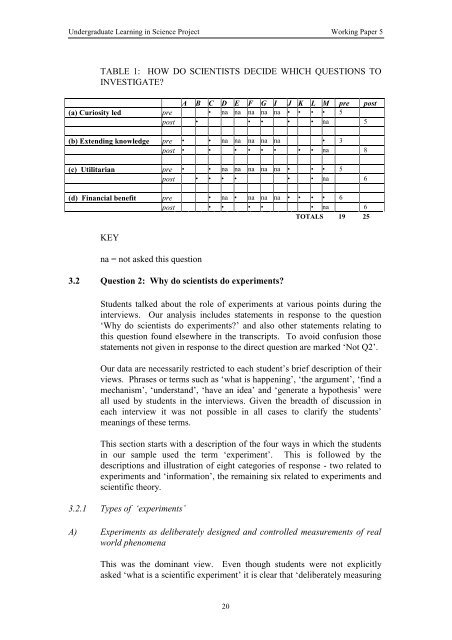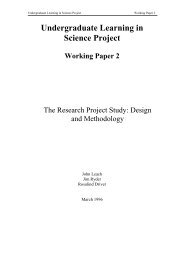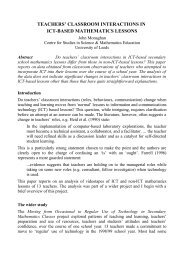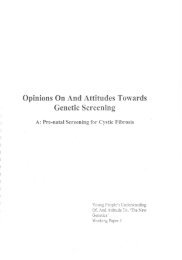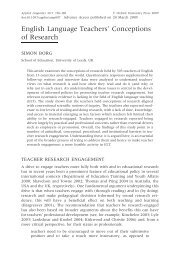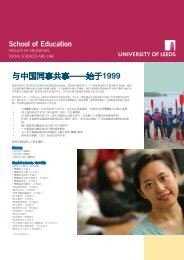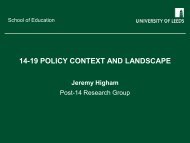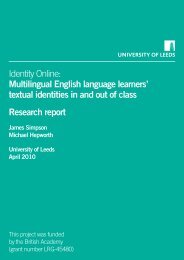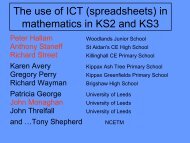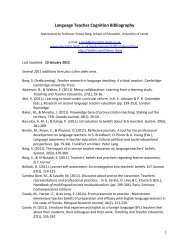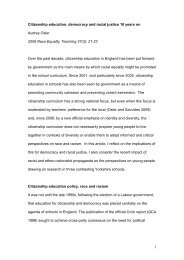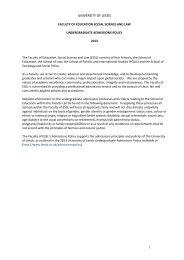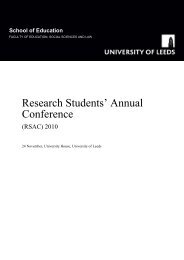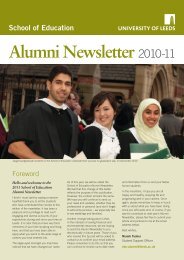Undergraduate science research projects and students - School of ...
Undergraduate science research projects and students - School of ...
Undergraduate science research projects and students - School of ...
Create successful ePaper yourself
Turn your PDF publications into a flip-book with our unique Google optimized e-Paper software.
<strong>Undergraduate</strong> Learning in Science Project Working Paper 5TABLE 1: HOW DO SCIENTISTS DECIDE WHICH QUESTIONS TOINVESTIGATE?A B C D E F G I J K L M pre post(a) Curiosity led pre • na na na na na • • • • 5post • • • • • na 5(b) Extending knowledge pre • • na na na na na • 3post • • • • • • • • na 8(c) Utilitarian pre • • na na na na na • • • 5post • • • • • • na 6(d) Financial benefit pre • na • na na na • • • • 6post • • • • • na 6TOTALS 19 25KEYna = not asked this question3.2 Question 2: Why do scientists do experiments?Students talked about the role <strong>of</strong> experiments at various points during theinterviews. Our analysis includes statements in response to the question‘Why do scientists do experiments?’ <strong>and</strong> also other statements relating tothis question found elsewhere in the transcripts. To avoid confusion thosestatements not given in response to the direct question are marked ‘Not Q2’.Our data are necessarily restricted to each student’s brief description <strong>of</strong> theirviews. Phrases or terms such as ‘what is happening’, ‘the argument’, ‘find amechanism’, ‘underst<strong>and</strong>’, ‘have an idea’ <strong>and</strong> ‘generate a hypothesis’ wereall used by <strong>students</strong> in the interviews. Given the breadth <strong>of</strong> discussion ineach interview it was not possible in all cases to clarify the <strong>students</strong>’meanings <strong>of</strong> these terms.This section starts with a description <strong>of</strong> the four ways in which the <strong>students</strong>in our sample used the term ‘experiment’. This is followed by thedescriptions <strong>and</strong> illustration <strong>of</strong> eight categories <strong>of</strong> response - two related toexperiments <strong>and</strong> ‘information’, the remaining six related to experiments <strong>and</strong>scientific theory.3.2.1 Types <strong>of</strong> ‘experiments’A) Experiments as deliberately designed <strong>and</strong> controlled measurements <strong>of</strong> realworld phenomenaThis was the dominant view. Even though <strong>students</strong> were not explicitlyasked ‘what is a scientific experiment’ it is clear that ‘deliberately measuring20


